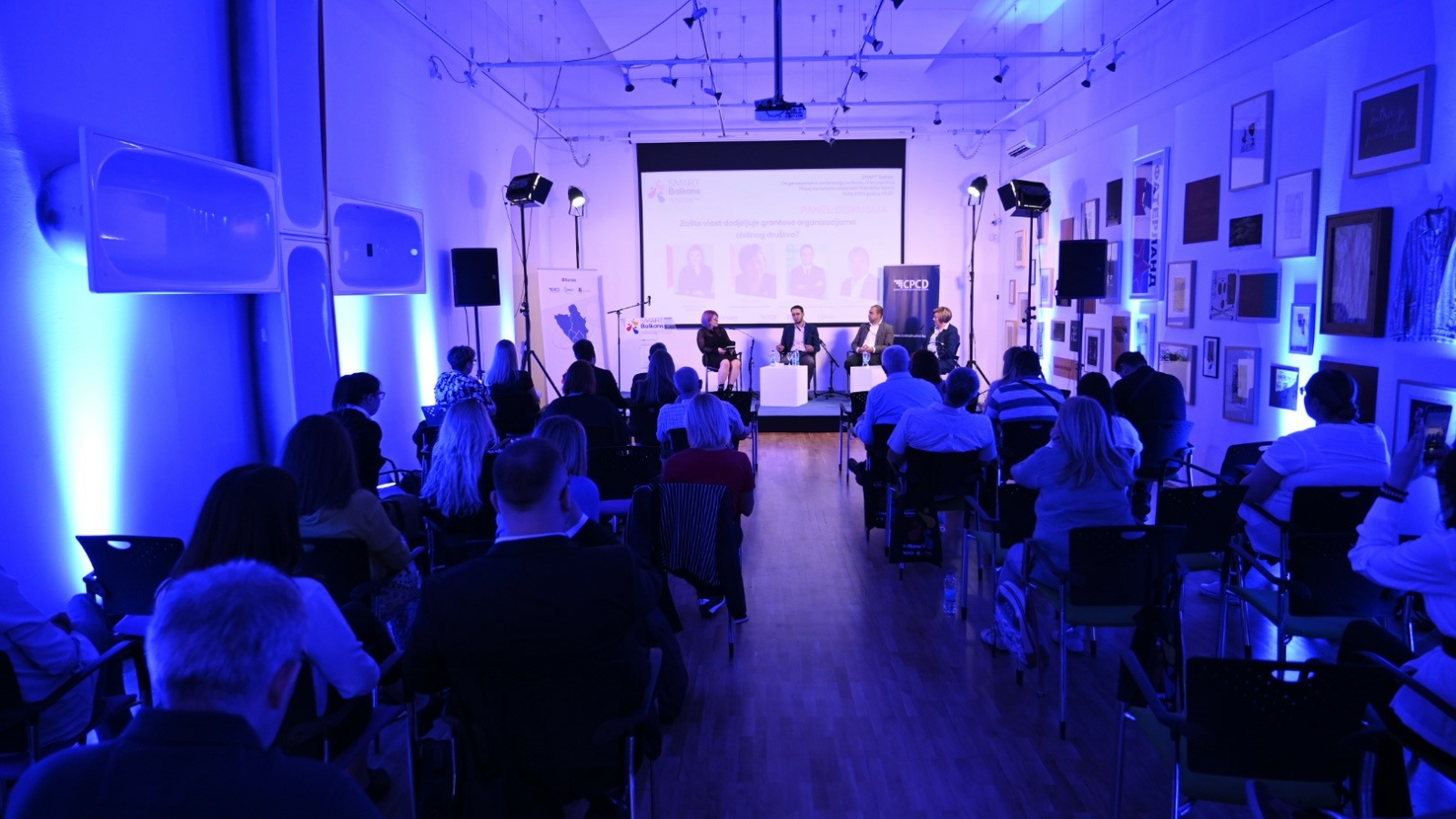In the Museum of Contemporary Art of the Republika Srpska in Banja Luka, the Second National Conference for BiH of the SMART Balkans project was held on the topic: Why does the government distribute grants to civil society organizations, which brought together representatives of civil society organizations, institutions, and the academic community.
Håkon Kristensen Moe, Deputy Head of Mission of the Norwegian Embassy in Bosnia and Herzegovina, emphasized that since the beginning of the implementation of SMART Balkans significant results have been achieved and stressed the great importance of wider and more active participation of CSOs in all social processes, as well as the insistence on democratic principles and values.
“Civil society and independent media are the foundation of every democracy. They are a key control mechanism that contributes to open public debate, inclusive and free democratic processes. SMART Balkans is a unique opportunity for a better positioning of civil society in the region, especially in the areas of security and stability, and governance”, concluded Håkon Kristensen Moe.
“We believe that the government is not obliged to finance non-governmental organizations, but it is obliged to finance good and useful projects for the progress of local communities and a better life for citizens”, pointed out Aida Daguda, director of the Centar za promociju civilnog društva (CPCD) and assessed that every level of government in BiH there is cooperation with civil society organizations, as well as that local communities allocate a lot of money for this sector. However, she noted that there are a lot of irregularities in the distribution of money, and expressed the hope that today’s conference will contribute to reducing these irregularities as much as possible.
During the Conference, the possibilities for applying for SMART Balkan funds were presented, with an emphasis on the open call for the allocation of regional grants until the end of the month, intended for consortia of at least three organizations from three Western Balkans countries, and/or formal or informal regional networks for projects related to security and stability and governance, with a strong regional dimension. The second public call for CORE grants applications was also announced, which will be opened on June 30, 2023.
Also, new contracts were signed with nine organizations from Bosnia and for the implementation of National interventions projects, supported with the amount of EUR 437.254,74, which thus joined the previously awarded 109 projects in the amount of about 3,8 million EUR.
Detailed information about the awarded organizations is available at the link: https://smartbalkansproject.org/grants/bosnia-and-herzegovina-grants/national-interventions-bs/
The dynamic panel discussion reviewed the reasons and purpose of public calls, their role in the overall social and economic development of the country, and plan-oriented strategic development. The panelists were Slaven Jelić, Assistant Mayor of Teslić Municipality, Đevad Šašić, Prof. Dr. Faculty of Administration, University of Sarajevo and Murisa Marić, Don Prijedor Association, moderated by Dajana Cvjetković, SMART Balkans project manager.
The project SMART Balkans – Civil society for Shared Society in the Western Balkans is implemented in six Western Balkans countries by the Centar za promociju civilnog društva (CPCD) from Bosnia and Herzegovina, in partnership with the Institute for Democracy and Mediation (IDM) from Albania and the Center for Research and Policy Making (CRPM) from North Macedonia, and is financially supported by the Norwegian Ministry of Foreign Affairs with an amount of more than 17 million EUR, of which 85% will be distributed during the four-year period to strengthen organizations in Albania, Bosnia and Herzegovina, Montenegro, Kosovo, North Macedonia and Serbia.








